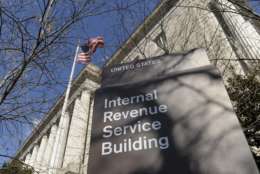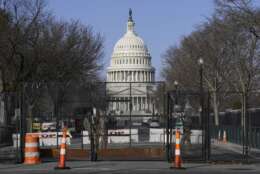Covid-19
-
Fewer than half of employees at the Federal Bureau of Prisons have accepted the COVID-19 vaccine, even though all of them have been offered it.
March 22, 2021 -
In today's Federal Newscast, the military’s program for collecting blood and plasma donations says it’s facing an emergency supply problem.
March 22, 2021 -
In a new campaign plan, the sea services say teaming traditional systems with unmanned ones will let them "rewrite the narrative" of maritime warfare.
March 22, 2021 -
The National Scenic Byways Program can tell you about some of the best drives to take near you. For more about the program, Federal Highway Administration spokesman Doug Hecox.
March 18, 2021 -
In today's Federal Newscast, the Senate has passed legislation that would let VA vaccinate anyone who’s ever served in the military, plus their spouses.
March 18, 2021 -
Over a year later, and some hope in sight, we are all in the same position playing the waiting game.
March 18, 2021 -
The Library of Congress is putting together collections showing the scope of the pandemic. Director of the Special Collections Directorate Michelle Light gave Federal Drive the details.
March 17, 2021 -
The National Treasury Employees Union said agencies are responding to the Biden's administration's call to restore labor relations in a variety of ways. Some agencies are making plans to return to the bargaining table, while others haven't responded to requests to revisit previous contracts.
March 16, 2021 -
The government has learned a lot about its strengths and weaknesses during COVID. Forrester Research Vice President Rick Parrish joined Federal Drive with a progress report.
March 16, 2021 -
In today's Federal Newscast, the District of Columbia will open up vaccine eligibility to essential employees at federal agencies in the area starting April 12th.
March 16, 2021 -
The agency’s years-long investment in robotic process automation reached an inflection point last year, when the IRS used a bot well-established in handling one task to take on an emergency scenario.
March 16, 2021 -
When Congress opened the spigots of spending in a bill President Biden signed last week, it used a nozzle to spray the money everywhere, including on the government itself.
March 15, 2021 -
A year ago today, the Office of Management and Budget told agencies to implement "maximum telework" policies as the pandemic kicked into full gear. Today, agencies are asking what's next.
March 15, 2021 -
One agency warned retirees could wait as long as six months for an initial interim payment and up to a year for a full annuity. The National Finance Center said it plans to return to its goal of processing retirements cases within 30 days by the end of the month.
March 12, 2021 -
For federal contractors, the pandemic has shown just how far off course normal procedures and government relations can get pushed.
March 12, 2021















